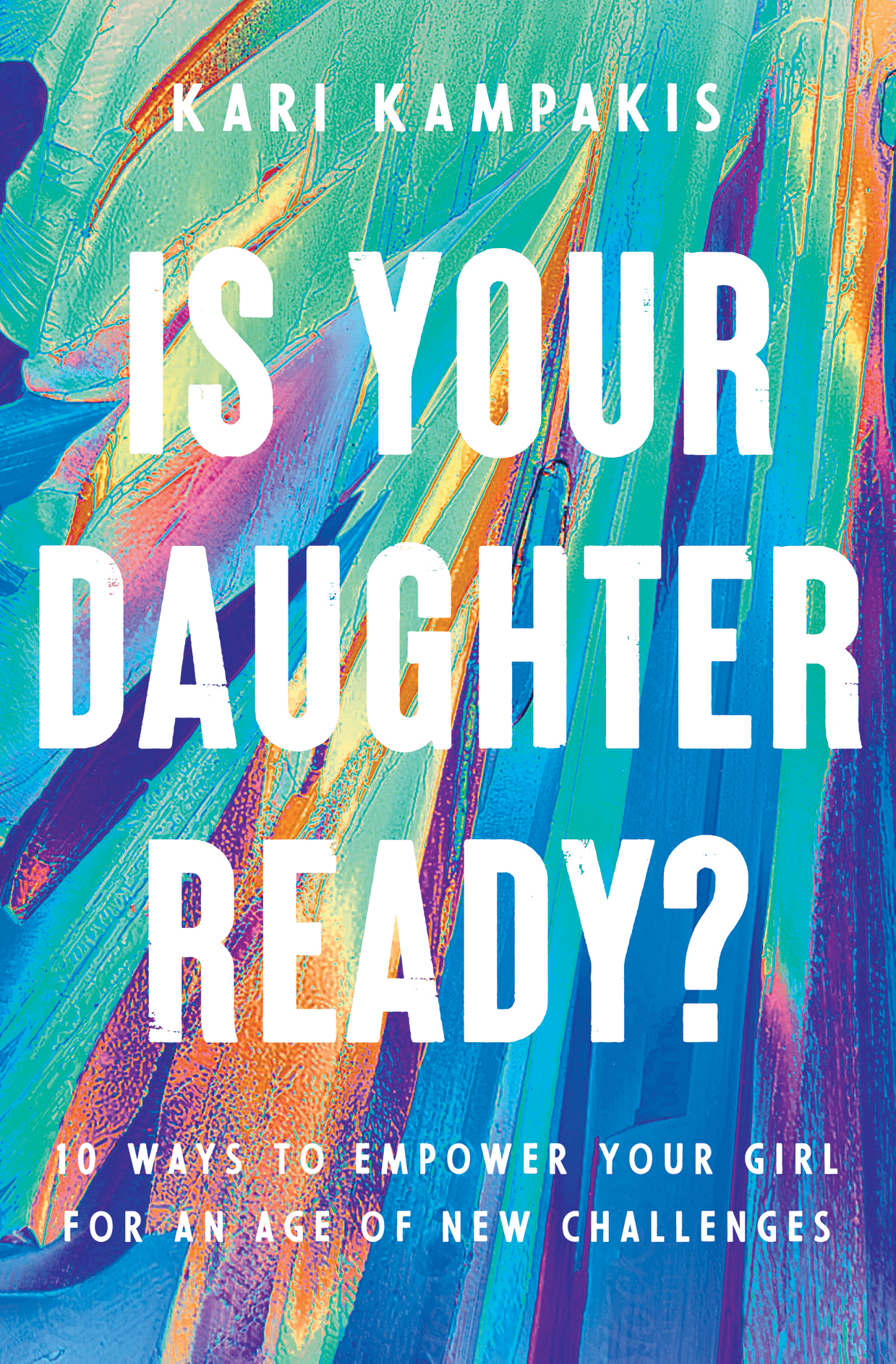Want to Help Your Daughter? Be Her Emotional Coach


“Girls who get a chance to talk about the abundant frustrations of their day usually feel better once they’ve unloaded their distress on you. Any adult who has spent dinnertime grumbling about a coworker, neighbor, or boss understands that sharing one’s true feelings at home makes it a lot easier to be charming out in public. Teenagers are no different. Having used you as their emotional dumping ground, they are prepared to return to school and play the part of the good citizen. Indeed, they may be able to act as a good citizen at school precisely because they are spending some of their time imagining the colorful complaints they will share once their school day has ended.”
Lisa Damour, author of Untangled: Guiding Teenage Girls Through the Seven Transitions Into Adulthood
************************************************************************************
A friend called me about an issue I often get asked about.
As a mom of younger girls, she is experiencing what I’ve now have gone through with 3 of my 4 girls.
“My daughter,” she said, hesitant to voice her concern, “has always been so sweet. But lately she’s been different. She gets mad over the smallest things, and I don’t even know what I’ve done.”
Immediately I assured her that her daughter is perfectly normal. I’ve had this conversation with countless moms, and I understand the exasperation as well as the unspoken fear.
In the very season we moms most desire to be close with our daughters – during the teenage years – we sense them pulling away. Our once comfortable relationship can feel unsteady or jeopardized. Some days our daughters like us….and some days we’re not so sure. At times we feel like the enemy as they forget we’re on their side.
Puberty and hormones? They are real and valid things. I’ve lived through enough by now to confirm that you know when the wind shifts. Though the timing was different for each of my daughters, the common thread was heightened moodiness, defensiveness, and irritability. More attitude than normal and a sporadic edge.
My biggest mistake – which took me time to correct – was mirroring my daughter’s reaction. If she got angry, I did too. If she snapped at me, I snapped back. Eventually I realized how this deepened the wedge. It made my daughters shut down and was, quite frankly, immature of me.
By getting wrapped up in my emotions – and how my child made me feel – I failed to stay calm and provide the emotional support and guidance she needed. I became so sensitive to the pushback or withdrawal that I forget to consider the inner turmoil that might explain the new behavior.
Now I know this: adolescence (and the transition into it) is hard. It’s a season of constant change, where every day is different. It’s scary for a child when their safe, predictable world gets rocked. At once they’re in the perfect storm of puberty, self-consciousness, self-doubt, comparison to peers, a need to belong, social media, academic pressures, and a flood of changes in their body, moods, friendships, and circumstances.
Here’s the kicker: for the first time in their life, teenagers are having big thoughts, big feelings, and big emotions. They aren’t sure how to deal with them, and it’s easy to unleash on Mom or anyone who feels safe because their love is unconditional.
A psychologist once told me the part of the brain that interprets emotions is developmentally behind the emotions themselves. To me this was an epiphany. It helped me understand one reason for teenage angst.
Don’t you hate that feeling of being frustrated or upset, yet you can’t pinpoint why? Haven’t you felt the tension of inner friction you can’t explain or wrap your mind around? Even a little clarity offers relief. Even a little discernment – or timely wisdom – can boost your ability to cope.
I can’t speak for boys, since girls are my wheelhouse, but this I know: adolescent girls need emotional coaches. They need adults who love them and can patiently help them develop cultivate a healthy inner life.
As my daughters grow up, they need me more emotionally. Oftentimes I get it wrong. I might try 3 wrong approaches before finding 1 that actually clicks. So if you’re at a loss with your daughter, don’t give up. She needs you, and finding an approach that keeps her talking to you is worth the time and effort.
Some thoughts on being an emotional coach:
1. Relationship is key. My friend Joelle recently pointed out that teenagers are very relational. As kids grow up, parents move from a position of POWER to a position of INFLUENCE. Having a strong relationship gives you a voice in your teenager’s life. It allows you to slowly become a mentor, coach, or counselor, someone they can turn to for advice or support.
As my kids approach the teen years, I prioritize a strong relationship. I note what doesn’t work (yelling, nagging, criticizing, not hearing them out, disciplining out of anger) and what does work (apologizing when I overreact, pointing out their strengths, diffusing tension with humor, laughing and having fun, having one-on-one time, showing empathy, listening, disciplining out of love, and explaining boundaries with logic).
With one daughter I was not on good footing at age 11, and I did some soul-searching to reverse that. I knew I’d lose her to her friends if we didn’t connect better, so I swallowed my pride and looked for ways to reach her heart. Today we get along great, and I’m so glad I made efforts to change.
2. Speaking your daughter’s language builds the relationship. The 5 Love Languages of Teenagers should be required reading for parents. It’s fantastic. It helped me understand all my kids better and offered priceless insights. Discover what speaks loudest to your child (words of affirmation, quality time, acts of service, physical touch, or gifts) and makes them feel loved.
I have one daughter who is obsessed with chocolate chip cookies, and after a harsh argument, I brought her home a chocolate chip cookie. That cookie cost me $2, but as I shared on Facebook, the value it added to our relationship was priceless.
3. Adolescence presents a big opportunity to reconnect with your daughter as her emotional coach. Yes, kids pull away, but they also come back – especially when they’re hurt or confused or excited to share good news. Girls live with an ongoing blizzard of thoughts and emotions. They want sounding boards, safe places, and people they can be “real” with to process life and events.
One gift you give your daughter is to be her emotional coach. Teach her to discern what she’s feeling (Maybe you snapped at Anna because you’re still hurt by her comment last week?) and verbalize it.
Girls who never develop emotional intelligence or self-control can wreak havoc in their relationships. They may become bulls in a china shop, taking their feelings out on anyone nearby.
The other extreme is girls who channel their emotions internally. They bottle them up, never processing them, and eventually the emotions come out as passive-aggression or self-destructive behavior. This too is unhealthy.
I often tell my daughters you have to know yourself. Pay attention to your moods and triggers. Some days I want to claw somebody’s eyes out, but that doesn’t give me an excuse to do it. We all have to learn to harness, manage, reflect on, and work through our feelings, keeping them in check so we don’t hurt others or ourselves.
4. Love your daughter and let her vent – but don’t be her punching bag. Teenagers push limits, and sometimes we moms take more than we should because we’re scared to lose them. We sympathize with their struggles and let them cross lines.
I think this is a mistake. It’s human nature to push a person as far as you can, and when we let our daughter (or son) treat us like a punching bag, we set a bad precedent for future relationships. One day it won’t be us they’re coming home to; it will be their roommate, their spouse, their child.
It’s okay to vent and unload stress, but it’s not okay to disrespect someone in the process. Additionally, teenagers need a healthy respect for authority if they hope to keep a job.
I’ve had to tell all my children: “You can’t talk to me like that. I love you, but I won’t let you disrespect me. If you do you’ll lose privileges. Please don’t take your anger out on me. I’m only trying to help.” If I can stay calm, they usually calm down too.
5. Give your daughter a healthy outlet. The best thing to do with big thoughts, big feelings, and big emotions is channel them into something healthy. Find a therapeutic outlet that brings peace and happiness, like art, music, prayer, exercise, spending time in nature, or pursuing a passion.
Encouraging your daughter to journal might also help. Let her pour her heart onto paper to collect her thoughts and express her feelings. Writing things out makes it easier to eventually say them out loud. It gives your daughter a safe place to be honest and transparent.
In Untangled, Lisa Damour says, “You must work with the assumption that every teenager secretly worries that she’s crazy.” I love this, because what I believe comforts girls most is the assurance they aren’t alone.
The very emotions that feel so unique and foreign are actually normal and universal. Talking them out with trustworthy people helps you untangle them. This is true for kids, adolescents, and adults. While none of us ever “master” our emotions, we can learn to control them so they don’t control us.
So if your daughter is new to adolescence or quickly headed there – hang in there. Be patient. Don’t let a rocky start or a hard season scare you off, because your daughter really needs you. Teenagers are forgiving, and they’re also really fun and smart. They can take a good word and run with it. A little coaching can go a long way – and so can some soul-searching on your end to find an approach that speaks to your daughter.
*****************************************************************************************************************************************

Thanks for reading this message. If you enjoyed it, please share it on social media.
My newest book, More Than a Mom: How Prioritizing Your Wellness Helps You (and Your Family) Thrive, is now available. It’s the perfect Mother’s Day gift for you and your friends!
I also have a book for girl moms, Love Her Well: 10 Ways to Find Joy and Connection with Your Teenage Daughter and books for teen girls, 10 Ultimate Truths Girls Should Know and Liked, These resources have been used widely across the U.S. for group studies.
For more posts, subscribe to this blog or join me on Facebook, Instagram and the Girl Mom podcast.
Posted by Kari on January 9, 2018









I always enjoy your level-headed guidance. I passed this on to my sisters who both still have adolescent girls. We all had a tumultuous relationship with our mother during this time and your suggestions are so helpful!!!
Thank you, Rush! I really appreciate you passing the article on. That mother-daughter turmoil is common and it’s always helped me to hear what works and what doesn’t in other homes. I loved seeing you the other day and am glad we got to catch up!
This is so very good! I’m a mom of an adult daughter and I can totally relate to everything you have written. I made my fair share of mistakes, but I did not give up. Finally, I found a way to be there for my daughter through the ups and downs of adolescence. As a result she and are best of friends. This article will be very helpful to the parents of teens that I Coach! Thank you for your insight!
I absolutely love the level of detail you cover in this. I fear the teenage years for my 2 daughters and my ability to manage the emotional spectrum I know is coming. I want very much to be the one they come to for support/guidance but I am also anxious about saying or doing the wrong thing. This is a great basic overview with some very practical tips I am sure I can use. Thank you!
Good for dads to read as well. I Sometimes don’t know what to say or when to say it. When I do, I’m sometimes told that is wrong or I don’t understand. My wife’s reactions can affect our relationship but Sometimes I just need to be present without saying anything. It is important for a couple to be in harmony during these years. I’ve been told by a good friend of mine who has an older daughter, that dads are appreciated wants the daughter goes off to college. I guess my time is coming soon!
This was very helpful and insightful! You are spot on with a teenage girl’s behavior. You offer very good strategies for handling it! Thank you so much! I have a teenage girl and I plan on trying them! I always love your articles. They’re full of so much wisdom❤️
Kari this article was very insightful. I have been working on similar aspects of my relationship with my teenage daughter and it seems to be working. I find it’s always better to sit and think of what one’s reaction should be, and sort through various options before choosing the best one,rather than reacting immediately.